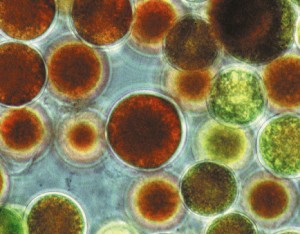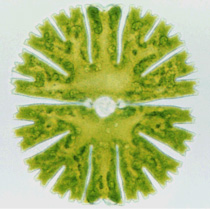Pond water has lots of interesting critters in it. Here are a few that you will find in your sample.
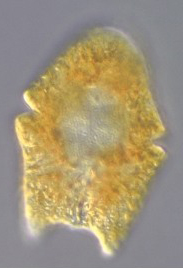
Wolosyznskia is a dinoflagellate. This one has armour which helps it to keep its shape. It has two flagella (tails) that help it move.
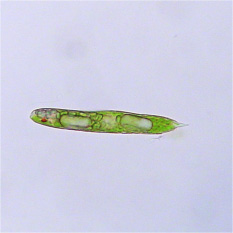
Euglena eat other organisms and can also photosythesize (make food from light). They also have a tail that helps them move.
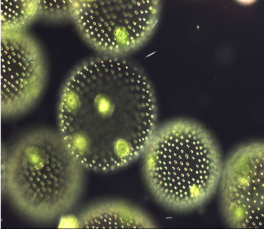
Volvox is a big ball made up of many tiny cells. Each cell has two flagella (tails). The little circles inside is a daughter colony.
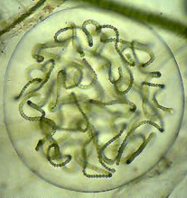
Nostoc is made up of filaments in a slime ball. It is a type of bacteria that can photosynthesize (take energy from the sun to make food).

